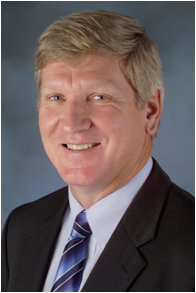- By Research Area
- By University
Directory
Faculty
Directory Details
[Return to Previous Listing]
James Fenton
Director, Florida Solar Energy Ceneter, University of Central Florida
Phone: (321) 638-1002
Fax: (321) 638-1010
Florida Solar Energy Center
1679 Clearlake Road
Cocoa, FL 32922-5703
http://www.fsec.ucf.edu/people/bios/Fenton.htm
Education:
Ph.D. University of Illinois, Urbana-Champaign, 1984
Research Interests:
James M. Fenton has been Director of the University of Central Florida's (UCF) Florida Solar Energy Center (FSEC) since January 2005, where he leads a staff of 140 in the research and development of energy technologies that enhance Florida's and the nation's economy and environment and educate the public, students and practitioners on the results of the research. FSEC, created in 1975 by the Florida Legislature to serve as the state's energy research institute, is the nation's largest and most active state-supported renewable energy and energy efficiency research institute. In addition to his duties as FSEC Director, he leads a 12-member university and industry research team in a $19 million U.S. Department of Energy research program to develop the next generation proton exchange membrane (PEM) fuel cell automobile engine. Dr. Fenton also serves as a Professor in UCF's Mechanical, Materials and Aerospace Engineering Department. Prior to joining FSEC, he spent 20 years as a Chemical Engineering Professor at the University of Connecticut. Dr. Fenton's research activities in fuel cells, pollution prevention and sustainable energy are helping FSEC expand its nationally acclaimed research and education programs in hydrogen, alternative fuels, solar energy and buildings energy efficiency. He is the author of more than 120 scientific publications and a number of book chapters and holds three patents. He was recently elected as Fellow of The Electrochemical Society. His major research interests are in fuel cells, sustainable energy, electrochemical engineering, environmental engineering and pollution prevention. Ongoing fuel cell research and education topics include: methanol oxidation electrocatalysts, CO tolerance electrocatalysts, hydrogen purification processes, low methanol crossover membranes, high temperature membranes, membranes and stack designs needing no external humidification, selective oxidation catalysts, gas diffusion layer design, bipolar plate design, small stack design, reversible PEM fuel cells, biomass and landfill gas fuel processing, undergraduate laboratory fuel cell experiments, K-12 fuel cell demonstrations and experiments and design of PEM FC powered toys. Work is continuing in the development of high-temperature membrane-electrode assemblies (MEAs) for proton-exchange membrane fuel cell (PEMFC) applications that operate at higher temperatures and under drier environments than the present commercial membranes. This ability can result in higher fuel cell system efficiency and lower cost. Higher temperature operation allows the use of smaller radiators in automobiles and more useful waste heat for stationary applications. In contrast with commercial MEAs, our MEA can be used under dry reactant feed conditions for portable applications. The technology has been scaled-up to a commercial 300 cm2 size and evaluated in multi-cell stacks. The resulting stack obtained a performance near that of the subscale cells, 0.60V at 400mA/cm2 at near 120 ?C and ambient pressure with hydrogen and air reactants containing water at 35% relative humidity. This was the world's first successful test of a higher-temperature, PEM, fuel-cell stack that did not use phosphoric acid electrolyte.














